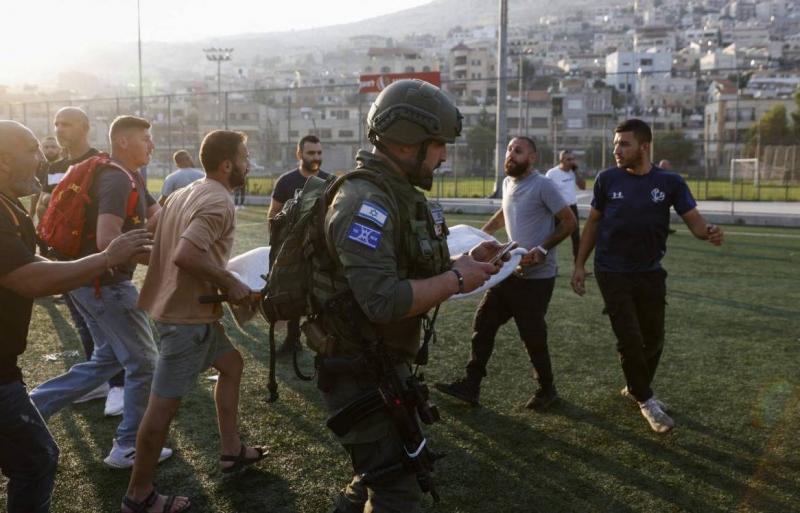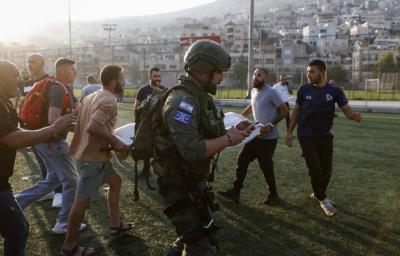While the expectation was to write this week about the increasingly intriguing American elections, with more than 2,000 delegates at the Democratic Party Conference endorsing "Kamala Harris" as the candidate for the Democrats in the upcoming presidential elections; and her securing $200 million added to $96 million already raised when President Biden was atop the candidates. The gap gradually narrowed between the always-smiling candidate and the Republican contender Trump, who has become increasingly troubled in the short period following the assassination attempt that he thought would end the electoral race in his favor. What happened, however, is that the path to the finish line remains long before matters are settled on November 5th. There was a determination by the Gaza crisis to regain momentum and attract attention, prompting major international and regional powers to urge Israel, Hezbollah, and sometimes the Lebanese government to do everything they can to prevent the outbreak of a comprehensive war in the Middle East.
The cause of this shift in international and media attention on July 27 was that a missile exploded in a football field in the village of Majdal Shams, resulting in 12 children aged between 10 and 16 becoming victims. Their aims were left unfulfilled, and lives cut short, leaving behind tearful eyes and wounded hearts. The scene was profoundly tragic from a purely humanitarian perspective, as tender bodies lay scattered in a field that had wheels awaiting the return of children who would never come back. Such a number of casualties is incredibly painful, especially when it occurs in a small village of 11,180 residents located in the occupied Golan Heights since 1967; the majority of its inhabitants are "Druze," whom Egyptians might recognize by recalling "Farid Al-Atrash" and "Asmahan." The roots of the religious group known as the Unitarians trace back to the Ismaili Shia sect during the period of Fatimid caliphate in Egypt, particularly in the era of "Al-Hakim bi-Amr Allah."
What intensified the critical nature of the incident is that the missile, of high precision and accuracy, was manufactured in Iran and is named "Khalq 1"; Hezbollah, located on the western side of the Golan, denied launching it. This coincided with enthusiastic Iranian declarations that they would not allow Israel to attack the Lebanese party. The Israeli-Lebanese front has been hot in recent weeks, shifting from a state of "discipline" in shelling and confrontation, which had persisted for a considerable time, to an alarming escalation, driven by the critical conditions inside the Palestinian Gaza Strip amidst ongoing combat operations and daily massacres by Israel against civilians and children at Khadija School, alongside continuous attempts at a ceasefire and truce facilitated by regional mediators Egypt and Qatar, along with the United States.
The situation remained heated as Israel remained firmly committed to not allowing Hezbollah to assault its Druze citizens, who have been recognized as citizens since Israel announced the annexation of the Syrian heights (Golan) in 1981; an annexation that no one in the world recognizes except the United States during Trump's time. This announcement contradicts the repeated declarations from the residents of Majdal Shams that they are clinging to Syrian nationality, even though the majority of Druze within Israel (143,000) have accepted Israeli nationality, joined the army, and now have an "Arab Battalion."
Thus, the situation became ambiguous concerning the Iranian-made missile and whether Hezbollah had confused the matter between a Syrian Arab village and a sect spread throughout Syria, Lebanon, Jordan, and Iraq, finding itself a minority in any case, even if many among them have Arab nationalist tendencies with significant figures such as Kamal Jumblatt and other Druze national leaders. Interestingly, while the situation intensifies on the Israeli-Lebanese front due to the Majdal Shams explosion, the memories of what Saddam Hussein did to the Kurds using chemical weapons in Halabja and the subsequent atrocities committed by the Islamic State with minorities such as the Yazidis, Chaldeans, Circassians, and Armenians appeared as a type of "sedition," as expressed by Walid Jumblatt, that he fears may engulf Lebanon and possibly more. Thus, the winds of war are no longer confined only to the Palestinian-Israeli front in Gaza or even geographically spreading to Syria, Lebanon, Yemen, and the Red Sea, with the possibilities of Iranian involvement and then the United States; they also deeply penetrate the fabric of the Arab Mashreq, spilling much blood.




